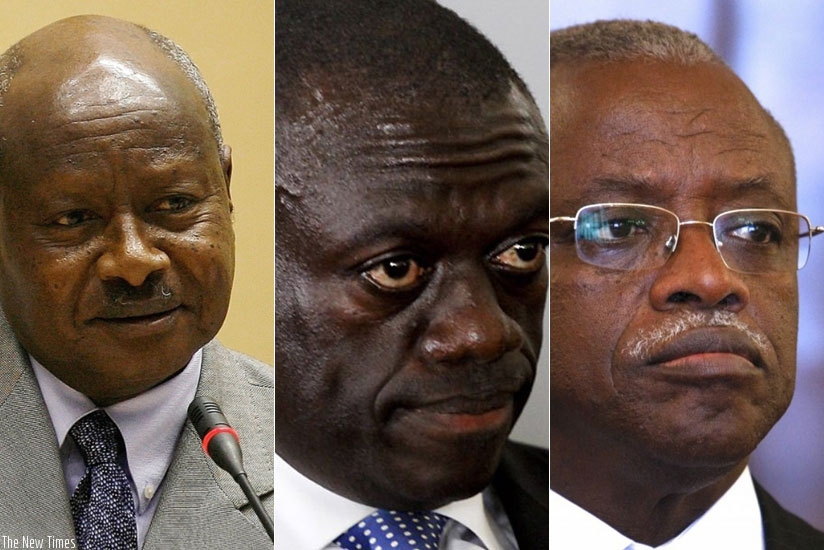Uganda goes to polls
At least 15 million Ugandans today go to polls to elect the nation’s next president and members of parliament.

L-R: President Museveni, Dr. Kiiza Besigye and Amama Mbabazi. (Internet photo)
